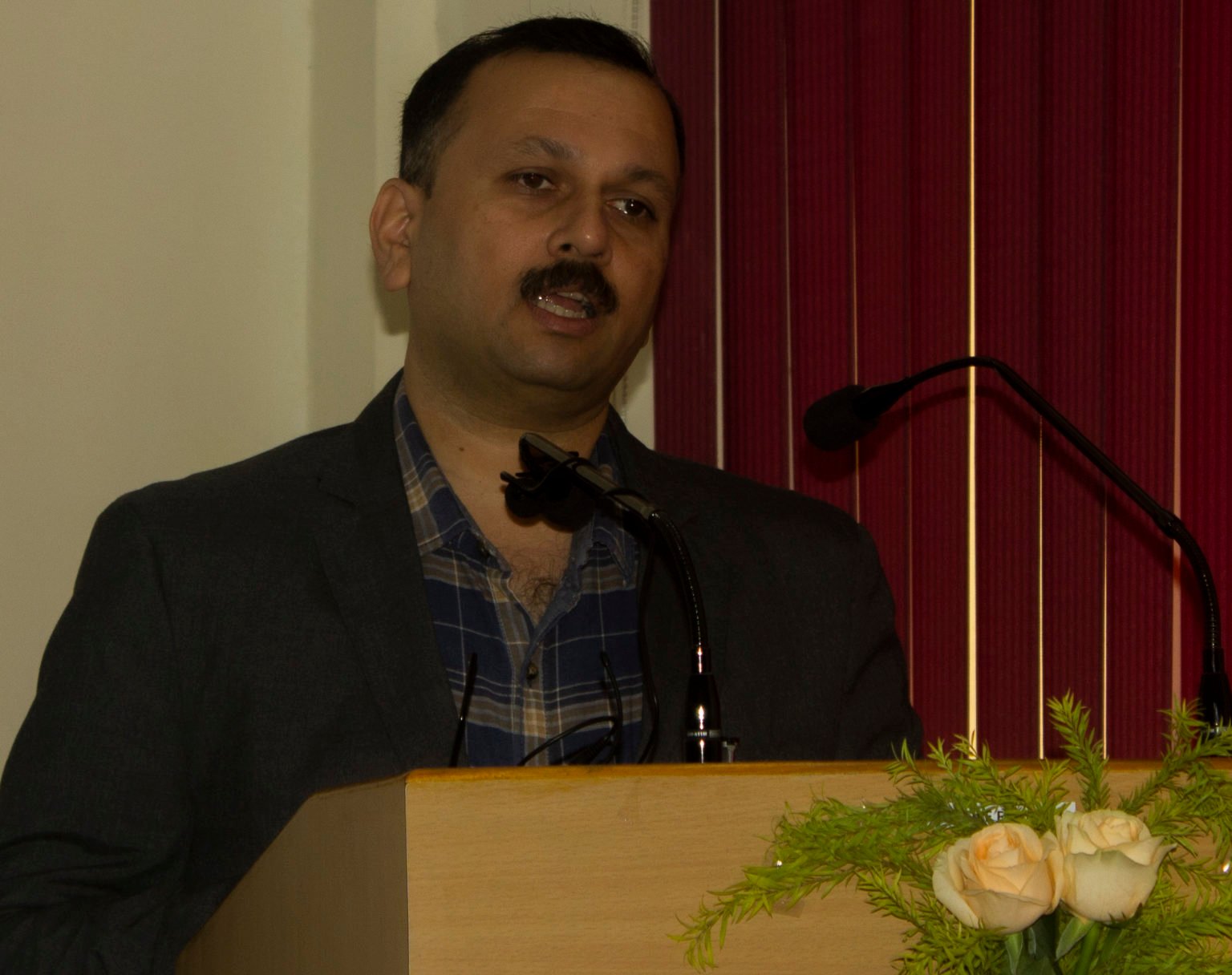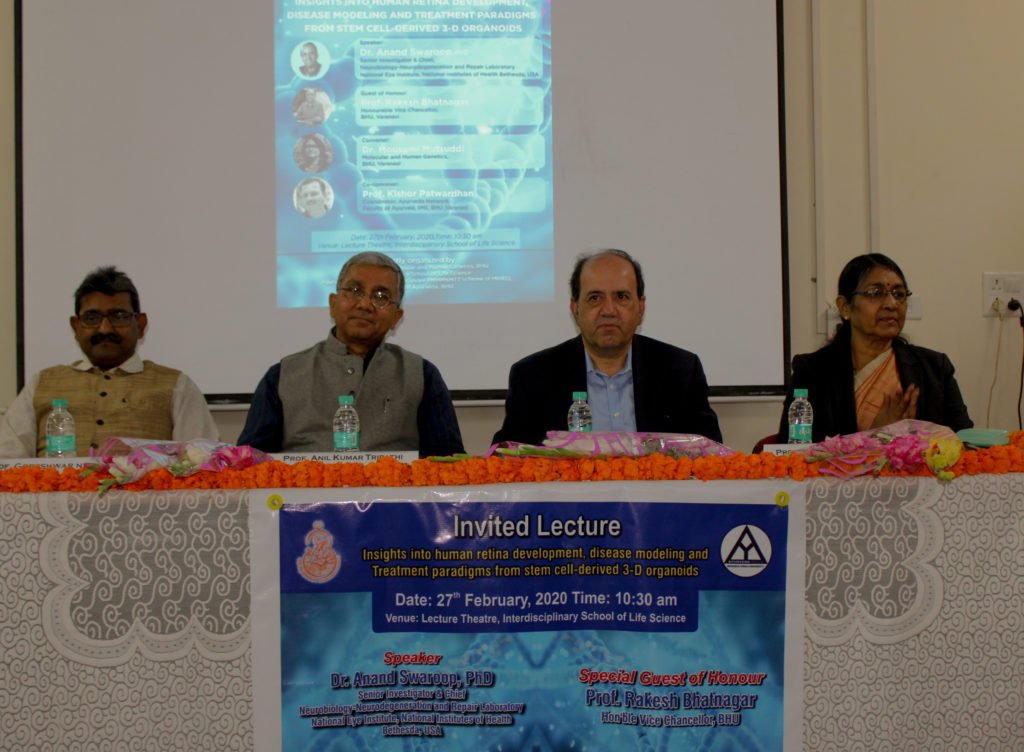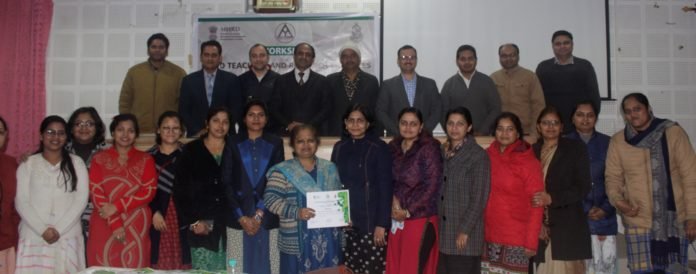Symposium
‘WHERE AND HOW TO PUBLISH?’ Symposium on Research Ethics and Scientific Publishing (Wednesday, 27th March, 2019)
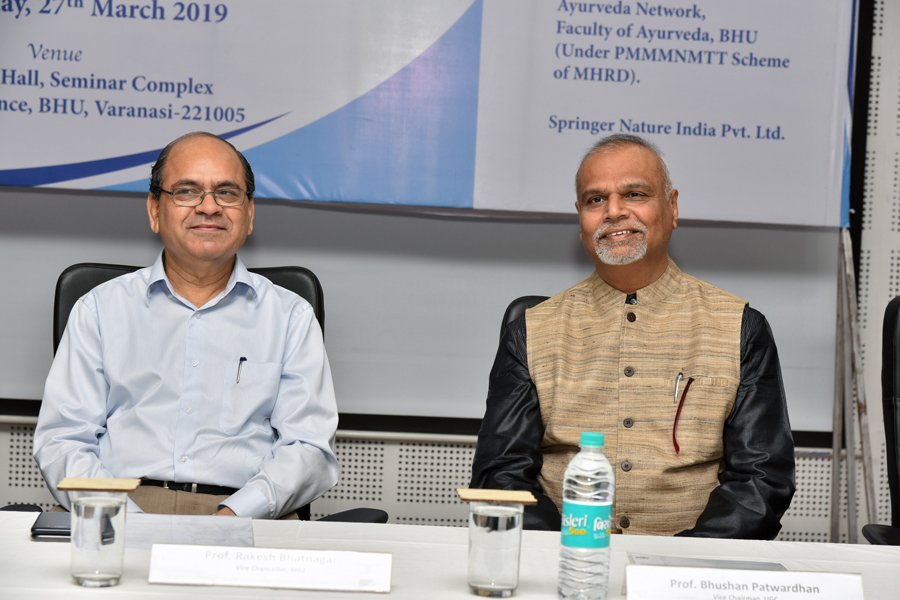
Ayurveda Network – Faculty of Ayurveda (established under Pandit Madan Mohan Malviya National Mission on Teachers and Teaching Scheme of MHRD), Department of Molecular and Human Genetics, and Springer Nature India, Pvt. Ltd. jointly conducted a one day Symposium on Research Ethics and Scientific Publishing titled ‘Where and How to publish?’ on 27thMarch, 2019 in Banaras Hindu University.
The event was organized to generate awareness regarding how to protect the research from predatory journals. Low quality journals have been instrumental in deteriorating the image of Indian research in global Scenario. It was first of its kind of a joint effort of this scale to generate awareness among the young researchers for publishing in quality journals.
The initiative was aimed at bringing together the critical pillars of the publishing process: policy makers, leaders of Universities, reputed publishers and the researchers. This effort culminated successfully into a deeply enlightening and motivational event. The guest of honour of the event was Prof. Bhushan Patwardhan, UGC Vice Chairman and it was presided over by the Vice Chancellor of B.H.U., Prof. Rakesh Bhatnagar. Other resource persons were Prof. SC Lakhotia, Distinguished Professor, Department of Zoology and Dr. Bhavik Sawhney, Springer Nature India, Pvt. Ltd. More than 300 research scholars teachers from various science disciplines took active part in the event.
The event started with planting of the sapling of Ashoka tree at Malaviya Bhawan by the guests of the event. The series of introductory lectures by the heads of the organising departments shed light on the activities of their departments. The team of Springer Nature India Pvt. Ltd. lead by Dr. Naren Agrawal, briefed about the publication process and how to communicate research globally and effectively.
The intentions behind organising such an event were brought to the fore by the convener Dr. Mousumi Mutsuddi and the co-convenor Prof. Kishor Patwardhan.
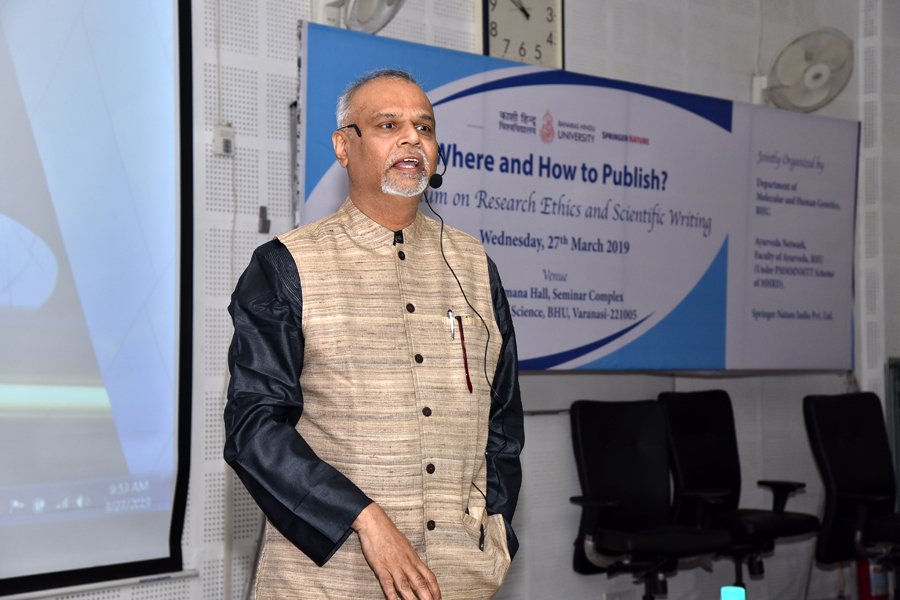 The Chief Guest, UGC Vice Chairman, Prof. Bhushan Patwardhan briefed the audience about the new initiatives of UGC that are designed for upliftment of the quality of research in India. He talked about the initiatives like ‘STRIDE’ [Scheme for Trans-Disciplinary research through Higher Education Institutes for National development and Entrepreneurship], ‘CARE’ ‘[Consortium for Academic and Research Ethics]. He focused on the role of different government consortia like DBT, DST, ICMR, CSIR in execution of these schemes and emphasised the egocentric role to be played by BHU in implementation of STRIDE initiative. In the wake of poor quality of faculty recruitment recently in different universities he vehemently emphasised quality over just numbers of publications. For boosting the ethical responsibilities of young scientists and students, he said, UGC has introduced faculty and student induction programmes. He took up many interesting questions by the audience during the interactive session that followed his lecture.
The Chief Guest, UGC Vice Chairman, Prof. Bhushan Patwardhan briefed the audience about the new initiatives of UGC that are designed for upliftment of the quality of research in India. He talked about the initiatives like ‘STRIDE’ [Scheme for Trans-Disciplinary research through Higher Education Institutes for National development and Entrepreneurship], ‘CARE’ ‘[Consortium for Academic and Research Ethics]. He focused on the role of different government consortia like DBT, DST, ICMR, CSIR in execution of these schemes and emphasised the egocentric role to be played by BHU in implementation of STRIDE initiative. In the wake of poor quality of faculty recruitment recently in different universities he vehemently emphasised quality over just numbers of publications. For boosting the ethical responsibilities of young scientists and students, he said, UGC has introduced faculty and student induction programmes. He took up many interesting questions by the audience during the interactive session that followed his lecture.
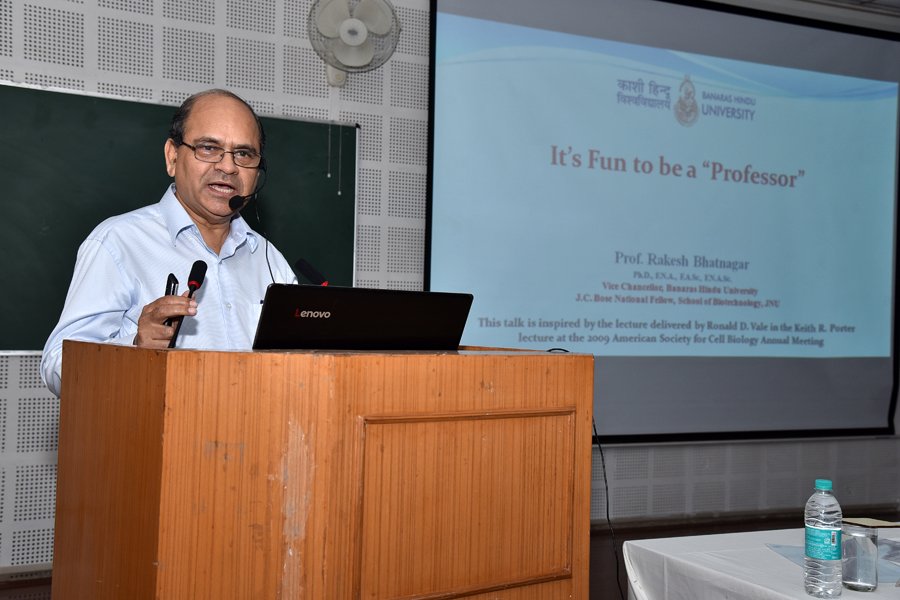
The Presidential address by the Vice Chancellor, Prof. Rakesh Bhatnagar highlighted the perks of being a researcher and academician despite being a field so demanding in terms of tenacity. Giving examples from his personal experiences he motivated the young minds to peruse research.
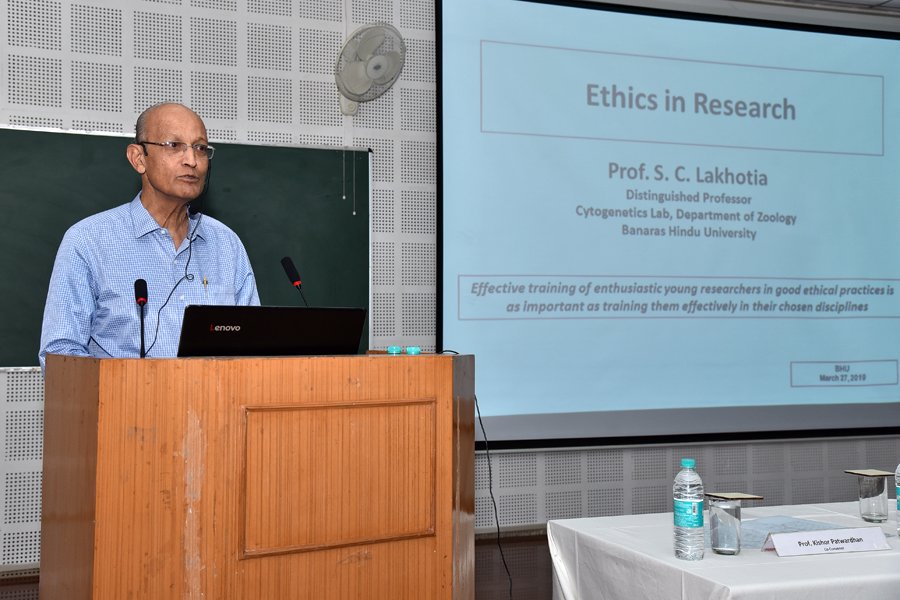
Prof. S.C. Lakhotia took over the dais to generate sensitivity about different ways of forgery in publishing research that are fundamental to the deteriorated status of Academics and research in India. Starting from basic issue of data fabrication to authorship and publication, he covered all possible loopholes which we create knowingly and unknowingly. The lectures were deeply insightful in nature, which motivated the young minds in Science to delve into the driving force that guides them into research and be cautious of elements like predatory journals that lure people.
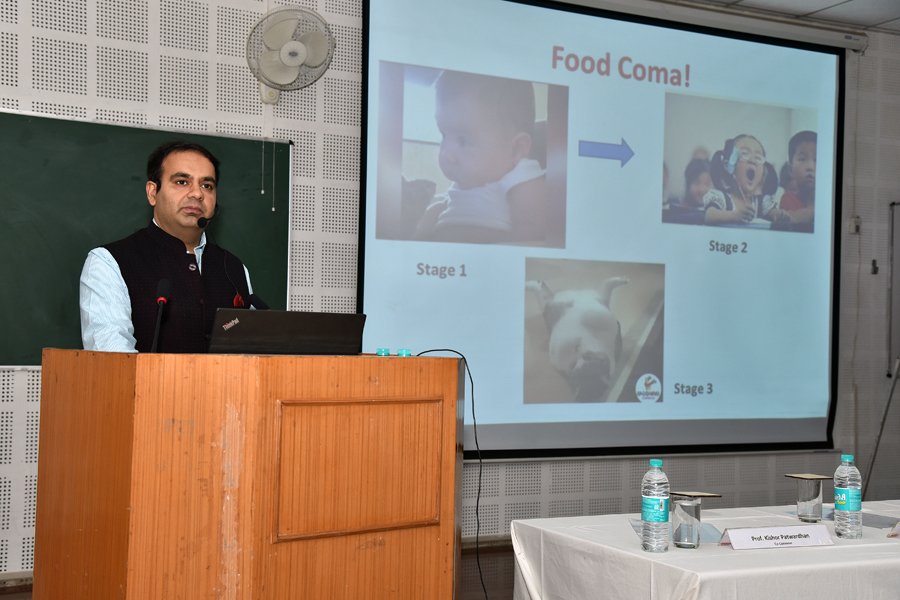 The programme concluded with an interesting and extremely informative interactive session by Dr. Bhavik Sawhney of Springer Nature India Private Limited, a brand in prestigious publishing and enlightened the audience about some basic stigmas associated with publication process. He discussed in detail the process of submitting a paper and vital points to be taken care of, while writing a research communication.
The programme concluded with an interesting and extremely informative interactive session by Dr. Bhavik Sawhney of Springer Nature India Private Limited, a brand in prestigious publishing and enlightened the audience about some basic stigmas associated with publication process. He discussed in detail the process of submitting a paper and vital points to be taken care of, while writing a research communication.
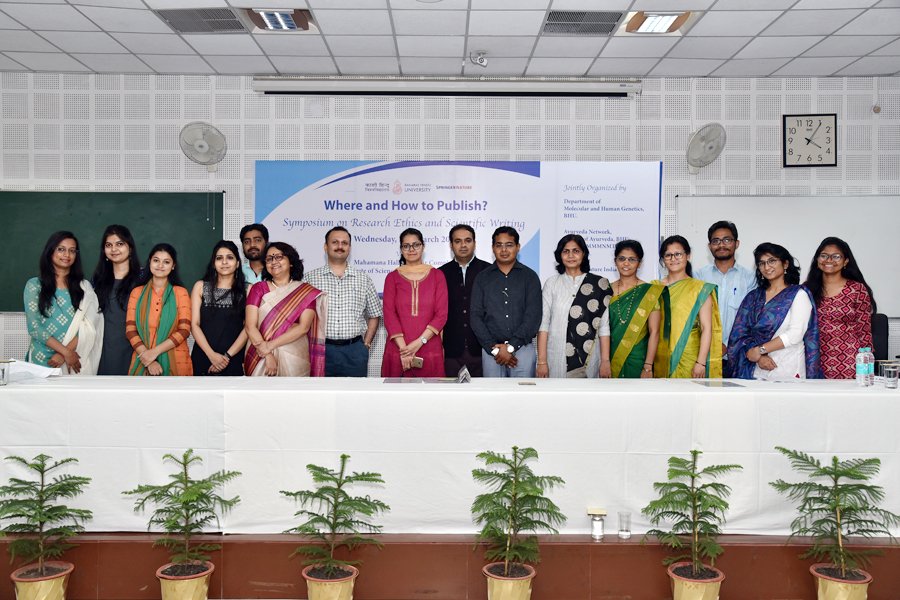 The event was conceived and executed by the Conveners Dr. Mousumi Mutsuddi, Prof. Kishor Patwardhan and organising committee members, Dr. Manoj Kumar and Dr. KHHVSSN Murthy and led to successful accomplishment which received an overwhelming response from all over the University.
The event was conceived and executed by the Conveners Dr. Mousumi Mutsuddi, Prof. Kishor Patwardhan and organising committee members, Dr. Manoj Kumar and Dr. KHHVSSN Murthy and led to successful accomplishment which received an overwhelming response from all over the University.
For further details of the event, please click HERE
Workshop
Workshop on Good Teaching and Research Practices for Ayurveda Teachers
Ayurveda Network organized a two-day workshop on Good Teaching and Research Practices where thirty assistant professors of Ayurveda were trained in the current trends and recent advances in the fields of research and teaching. The workshop was organized on the 16th and 17th of January, 2020 in the Faculty of Ayurveda, Institute of Medical Sciences, Banaras Hindu University. Thirty teachers participated in the workshop.
16th January 2020
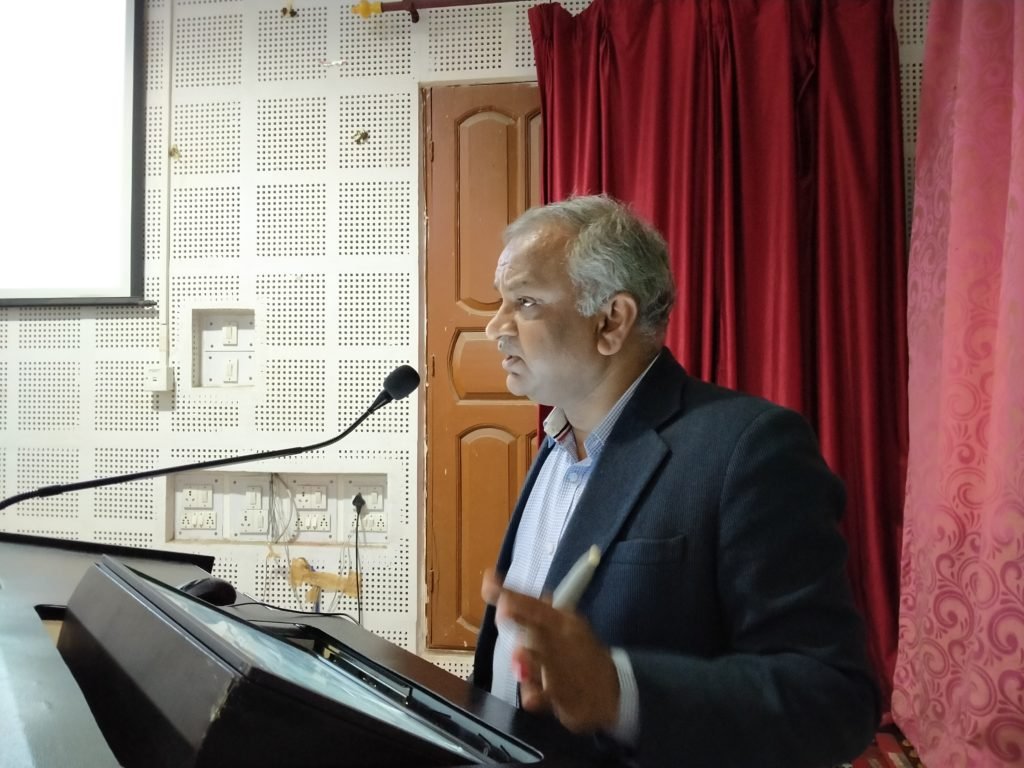
The first day began with a presentation by Prof. Sanjeev Rastogi of State Ayurvedic College, Lucknow. He delved on the good teaching practices and responsibilities of a good teacher and shared his experiences in innovative ways of teaching. He used several examples to show how Ayurveda can be taught differently in a student-centric way. He also emphasized the need for developing good communication skills and becoming a life-long learner to be a successful teacher. He also described the importance of having a healthy student-teacher relationship.
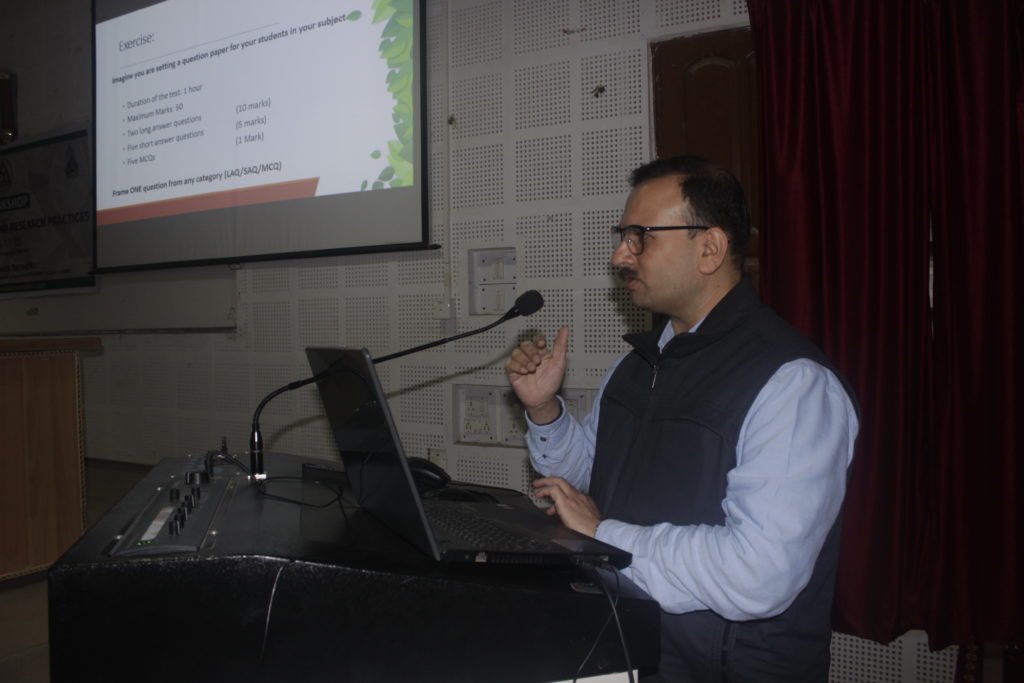 In the next session, Prof. Kishor Patwardhan, coordinator of Ayurveda Network, discussed the essentials of curriculum designing and assessment methods. He demonstrated with examples the ways of preparing a good curriculum. He explained how the syllabus is often confused with the curriculum. Taking help from the popular educational frameworks for learning, he described the distinction between Knowledge-Skills and Attitude domains of learning. He described the use of different levels of Bloom’s taxonomy in framing the questions for assessment. He also discussed the usefulness of Miller’s pyramid in framing a competency-based curriculum. He demonstrated how all these aspects can be incorporated into Ayurveda curricula of graduate and post-graduate level.
In the next session, Prof. Kishor Patwardhan, coordinator of Ayurveda Network, discussed the essentials of curriculum designing and assessment methods. He demonstrated with examples the ways of preparing a good curriculum. He explained how the syllabus is often confused with the curriculum. Taking help from the popular educational frameworks for learning, he described the distinction between Knowledge-Skills and Attitude domains of learning. He described the use of different levels of Bloom’s taxonomy in framing the questions for assessment. He also discussed the usefulness of Miller’s pyramid in framing a competency-based curriculum. He demonstrated how all these aspects can be incorporated into Ayurveda curricula of graduate and post-graduate level.
In the third session, Prof. Rastogi covered the essentials of planning the post-graduate and doctoral levels of the research. He described various guidelines that a teacher must consider before planning a research work. He discussed various important guidelines issued by the Central Council of Indian Medicine, University Grants Commission, ICMR and other regulatory agencies from time to time regarding research proposals in academic institutions. He also described how unethical practices such as publishing with low-quality journals, publishing plagiarised material etc are to be avoided. He highlighted some of the commonly ignored essential steps while designing a study such as registering a clinical trial with the Clinical trial registry of India (CTRI), obtaining written informed consent etc.
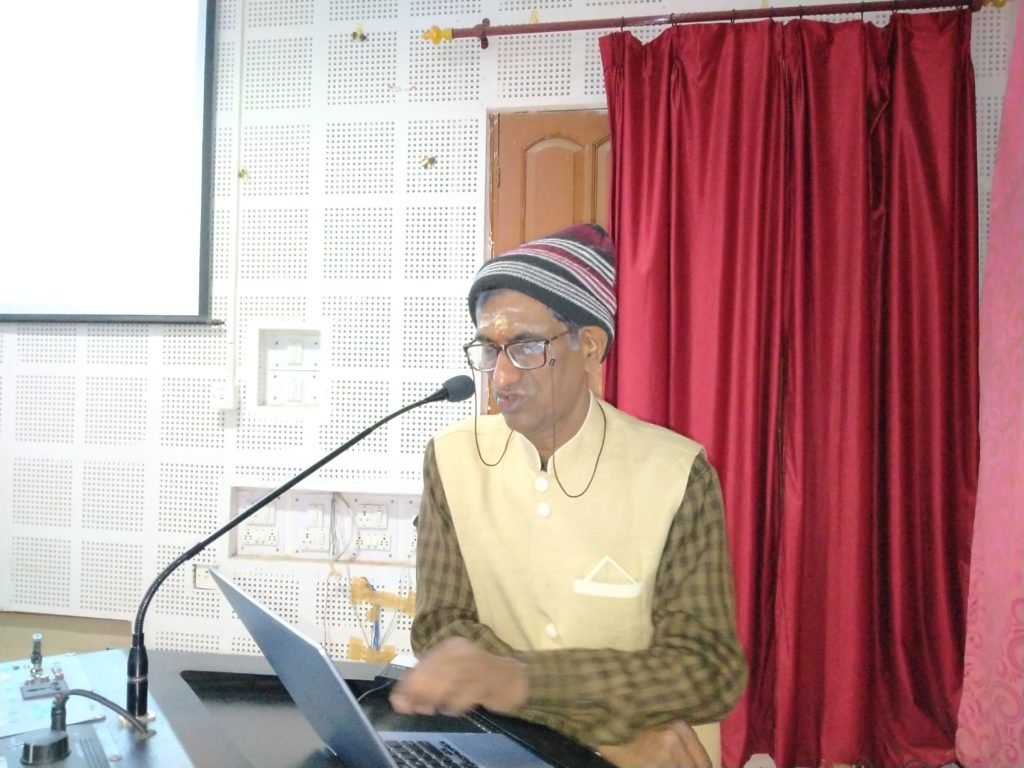
The next session was conducted by Dr. KHHVSSN Murthy, Associate Professor, Department of Kaya Chikitsa and co-coordinator of Ayurveda Network. He delved on Good Clinical Practice Guidelines applicable to various kinds of clinical trials involving Ayurveda interventions. He discussed the historical aspects of the evolution of the studies on human subjects while explaining how faulty and unethical practices in the past led to the formulation of various declarations and guidelines. He described the ethical aspects involved in clinical trials. He also explained different phases of clinical trials applicable in Ayurveda research using AYUSH guidelines.
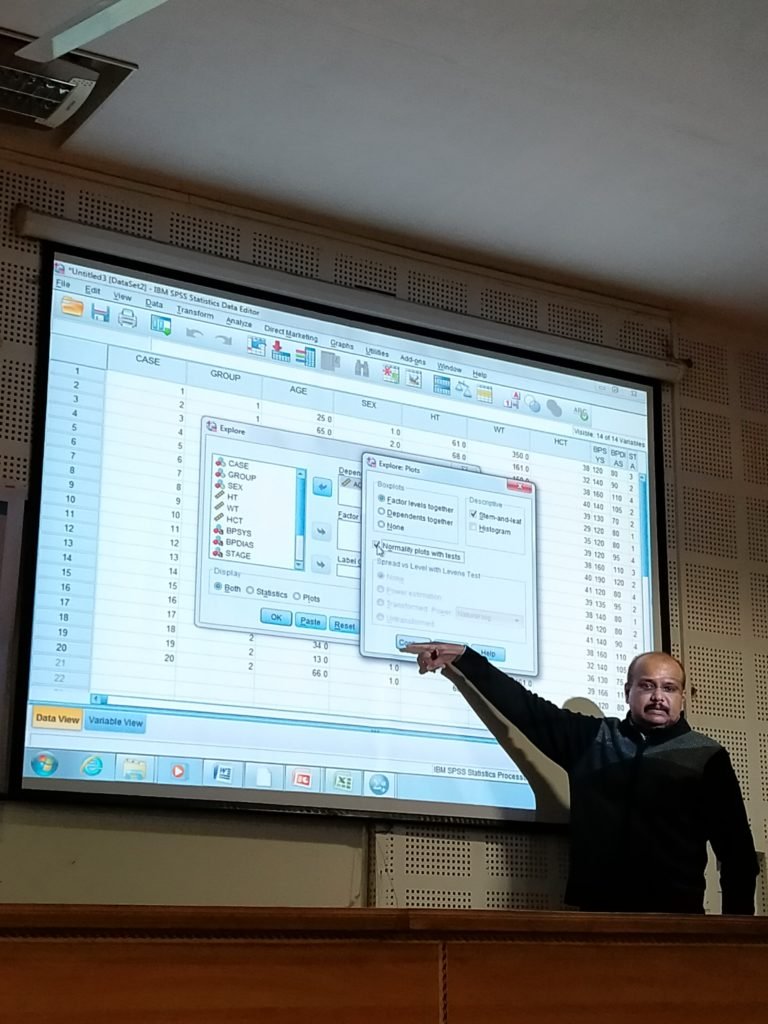
The fifth session of the day was focused on the essentials of biostatistical methods and commonly used tools to carry out statistical analysis. Dr. Alok Kumar, Associate Professor from the Department of Statistics, Institute of Science, Banaras Hindu University, handled this session. He started the session by demonstrating the correct ways of data-entry on a spreadsheet. He then went on to describe the common methods and tests employed while analyzing the routine data concerned with biomedical research. He explained how and when to use the different parametric tests and non-parametric tests while also explaining the correct methods to see if the distribution of data is normal or not. He demonstrated the methods of using different statistical tools such as MS Excel and SPSS by applying different tests on different data sets.
17th January 2020
The second day of the workshop began with a demonstration of the use of various web-based platforms useful in teaching and research. Prof. Kishor Patwardhan engaged this session and demonstrated the use of Google Scholar, PubMed, Scopus, Web of Science, Publons and other similar platforms. He explained the method of calculating several indices such as h-index, i10 index etc. He explained in detail using suitable examples to show how Scopus can be used to analyze the publication profile of an author as well as of an institution. He explained the use of different criteria of searching the relevant literature on PubMed, PubMed Central, Medline etc.
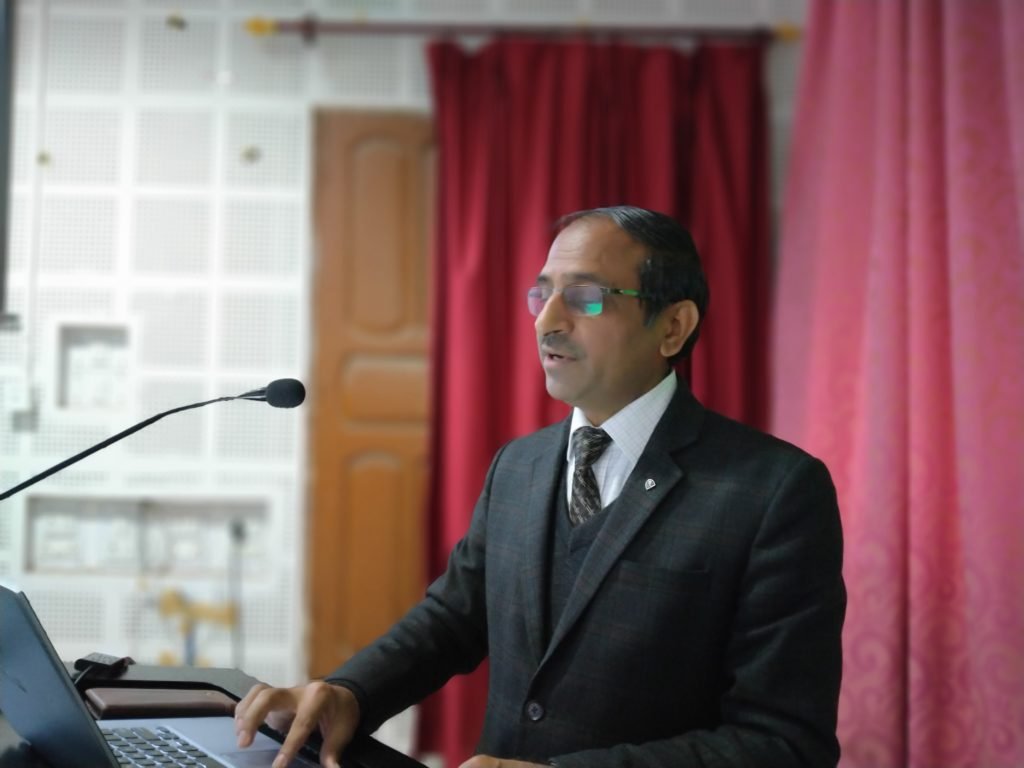
The second session was handled by Dr. Manoj Kumar, Associate Professor, Department of Shalakya Tantra and the co-coordinator of Ayurveda Network. His talk was on the effective ways of using digital tools in day-to-day teaching. He demonstrated how certain tools such as QR Code, Google Forms, Google Sheets etc can be used to administer MCQs / tests in the classrooms and how a teacher can compute the results and communicate them among the students effectively and quickly without using any traditional form of question papers and answer sheets. He also demonstrated the use of Google Forms and Google Documents for collaborative learning. Using some features such as mail-merge in creating documents, the right ways of preparing a structured document were other aspects that he covered.
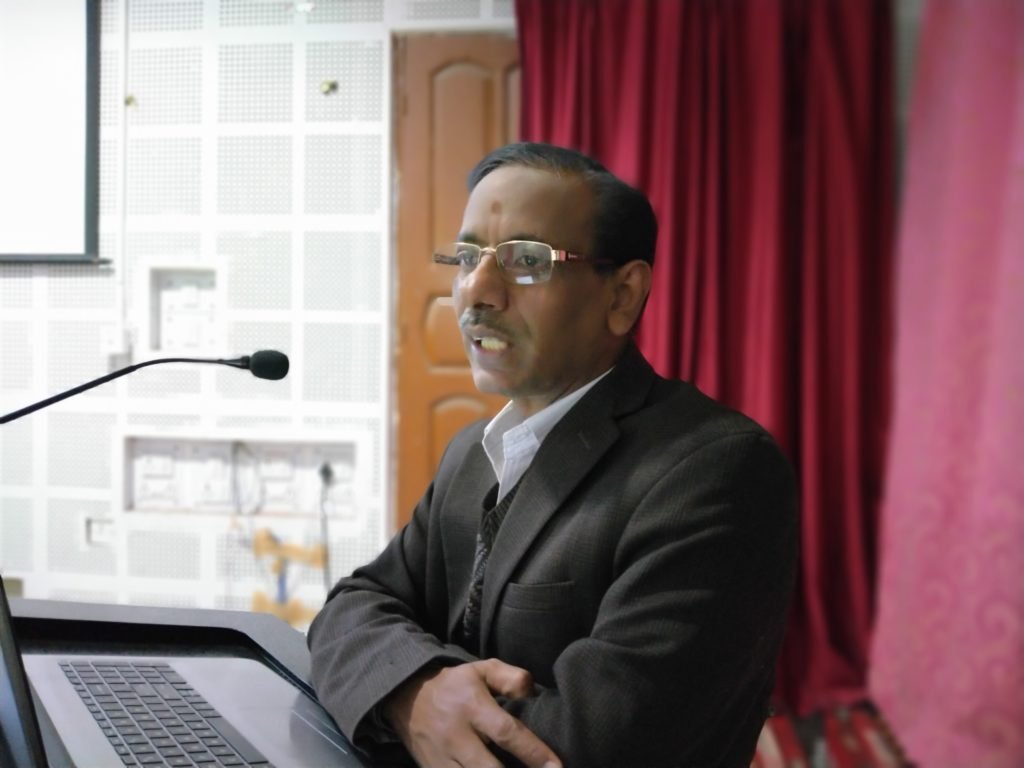
The third session of the day involved a demonstration of the use of different open-source software in routine teaching and using reference management tools. Sri Duvvuri Venu Gopal, Deputy Registrar (Development), BHU was the resource person who conducted this session. He demonstrated the use of several substitutes for commonly used proprietary software and explained the worth of using such platforms. He delved on the historical aspects involved in the evolution of the open-source movement. He demonstrated the use of some useful tools available for reference management such as Mendeley and JobRef. He demonstrated how one can insert references in the text using these tools and populate the bibliography section in the desired referencing style. He also demonstrated the method of using Unicode fonts for Indian languages including Hindi.
The last session was on the essentials of journal metrics which was conducted by Prof. Kishor Patwardhan. He delved on the distinct models of publishing such as traditional journals and Open Access journals. While explaining how the open-access movement in science has enabled an extensive reach of science to the masses, he also explained the modes of misuse of this model by various small-scale publishers. He described how mushrooming of sub-standard journals has brought disrepute to Indian science. While explaining different journal metrics such as Impact Factor, Cite Score, Scimago Journal Rank he cautioned against misleading metrics such as Universal Impact Factor, SJIF Impact Factor, Global Impact Factor etc. He explained the easy ways of identifying credible journals in any field of biomedical science.
The certificates to the participants were distributed by Prof. OP Singh, Head of the Department of Kaya Chikitsa. The participants gave their feedback and shared their views on the workshop. Many participants expressed their feeling of appreciation about the complete utilization of time where no inaugural or valedictory ceremonies were organized.
To read further about this activity, please click here.
Invited Lecture:
Invited lecture on the biological basis and potential therapeutic interventions in retinal dysfunctions
Dr. Anand Swaroop, an eminent scientist at National Institute of Health, Bethesda, USA delivered an invited lecture at the Banaras Hindu University on 27th February, 2020. He was invited by Dr. Mousumi Mutsuddi to share his research experiences on the human retina development, disease modelling and treatment paradigms from stem cell-derived 3-D Organoids. The event was jointly organised by the Department of Molecular and Human Genetics, Interdisciplinary School of Life Sciences and Ayurveda Network, Faculty of Ayurveda, BHU, under Pandit Madan Mohan Malviya National Mission on Teachers and Teaching Scheme of MHRD.
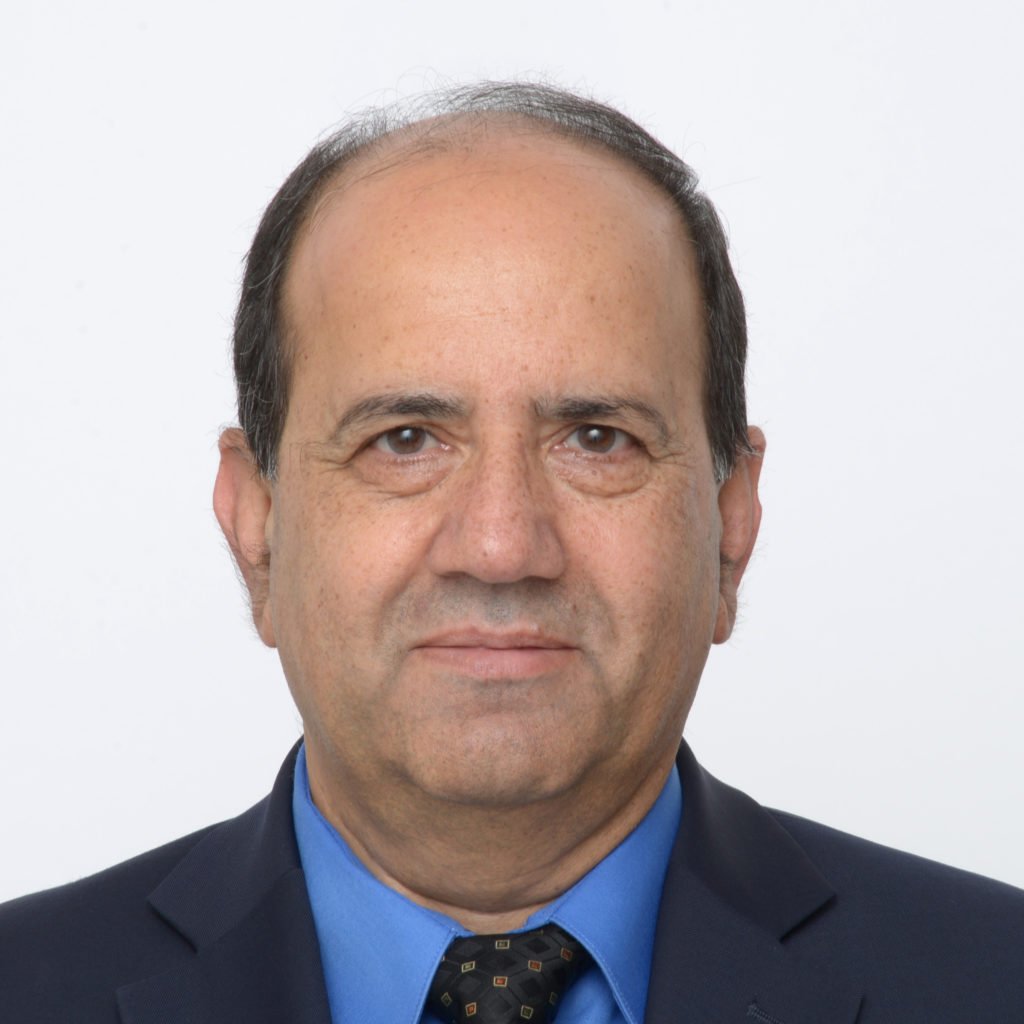 One of the most commendable contributions by Dr. Swaroop includes identification and characterization the gene Nrl, and its plausible role in determining therapeutic outcomes for curing the dysfunctional retina in numerous kinds of blindness. His laboratory has achieved huge feats in the field with the amalgamation of basic science and engineering technology.
One of the most commendable contributions by Dr. Swaroop includes identification and characterization the gene Nrl, and its plausible role in determining therapeutic outcomes for curing the dysfunctional retina in numerous kinds of blindness. His laboratory has achieved huge feats in the field with the amalgamation of basic science and engineering technology.
The lecture marked one of the key milestones in the continuous strive to improve the research in the varsity while also inspiring the students with an emphasis on the need for interdisciplinary approach to solve scientific problems. The programme was presided over by the Director of Institute of Science, BHU, Prof. Anil K Tripathi in the presence of Prof. Madhoolika Agrawal, Coordinator, ISLS. The event concluded with the insightful remarks by Prof. Subhash C. Lakhotia. Prof. Kishor Patwardhan, coordinator, Ayurveda Network proposed vote of thanks. Prof. GP Dubey, Prof. BN Sing, Y. Singh (University of Delhi) and other eminent academicians graced the event.
